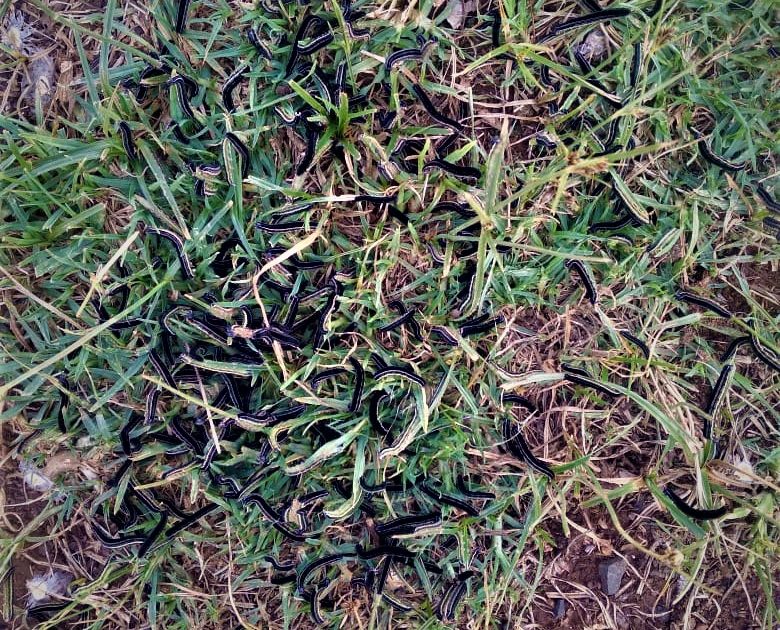Uasin Gishu County Director of Agriculture Mr Reuben Seroney has announced that there is an invasion of Fall Armyworm (FAW) that has so far destroyed 121 acres of crops out of which 100 acres is maize and 16 acres of Boma Rhodes grass.
“There is a sporadic invasion of fall armyworms in maize fields and we are taking early precautions in sensitizing farmers on the need to report promptly to our extension officers. We have also received some assorted chemicals from the Ministry of Agriculture including Deltamethrin, Alpha, Rapid and Appeal as a mitigation measure to prevent further attack,” said Seroney.
“The FAW has affected the grain basket of Kenya and hence can lead to serious food shortage. If necessary, mitigation measures are not going to be put in place. The worm targets maize, sorghum and barley and has so far affected 121 acres and is anticipated to scale up because of the current favourable condition of warm weather that supports its survival,” explained Seroney.
He indicated that currently, the Department of Agriculture has planted 104 hectares which is under maize production and with this infestation, our food production is going to be scaled down creating a serious food security issue.
“Areas that have reported such cases are Kesses Sub County with 50 acres affected, Kapseret Sub County with 16 acres affected, Soy sub county where 50 acres are affected and Turbo sub-county with 5 acres affected. I want to inform you that our extension officers are on high alert on the ground and in these areas, we are very vigilant to help contain the pest menace,” said Seroney.
The County Director indicated out of 121 acres in Kesses, the most affected is Tulwet Chuiyat ward where 50 acres have been affected and in the 50 acres, the casualties are eight farmers. In Kesses, Tarakwo ward 4 acres of maize have been affected and the county has put in place urgent measures to prevent the effect of the fall armyworm.
“We thank the State Department of Agriculture for giving us some chemicals to control pesticides in a bid to eradicate the pests, motorized sprayers, knapsack sprayers, ultra-low volume (ULV) sprayers and assorted Personal Protective Equipment (PPEs). We received the consignment last week in small amounts but we are going to request for more in the days to come. We have already distributed it to our field officers to ensure the crops are sprayed and we are able to limit its attack on our crops,” informed Seroney.
The farmers in the county have already prepared 104,000 hectares which are under maize and 16,500 hectares under wheat production. These are cereal crops that are highly favoured by the pests and actually this means an attack on this production may create a food deficit leading to food crisis.
Agriculture Executive Samuel Yego, expressed fear that unless early steps are taken to prevent spread of fall armyworms, effect on maize and wheat production would be devastating.
“The ongoing planting season represents one of the main opportunities to tackle hunger, protect lives and livelihood in the country. However, with fall armyworms having a preference for maize and other cereals, an outbreak threatens to further undermine the food security of families that can ill afford another crisis as the pest is known to cause 100 percent crop losses,” noted Yego.
He pointed out that the rainy season is coming on and rain is one of the effective methods to get rid of the pests as it wipes them away urging farmers to plant as early as possible because this year, the farmers have faced several hurdles such as high fertilizer prices although it was subsidized late, shortage of fuel especially diesel that are used in tractors to till the land and droughts indicating production would be low this year.
By Hassan Adan Ali and Ekuwam Sylvester




